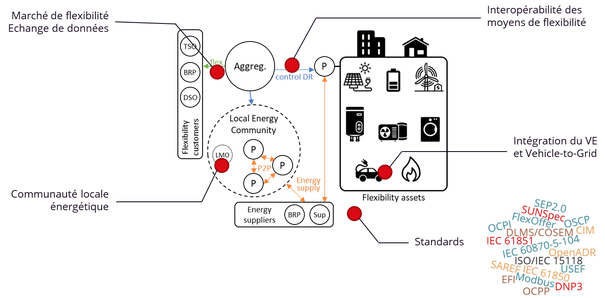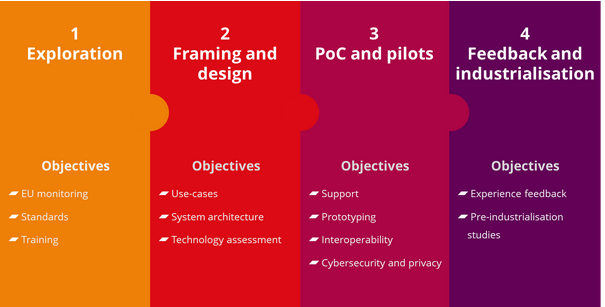Scope
Trialog’s activity on smart energy domain is based on both EU-funded R&I projects and industrial projects for customers. It focuses on the following scope:
- Energy Grid: grid management, RES integration, real-time observability and control, substations automation, metering
- Flexibility: flexibility markets, business processes, use-cases, demand-response, flexible assets management, flexibility trading, settlement, energy management, local energy community (LEC)
- Smart home, smart building: smart appliances, customer energy manager (CEM), building automation, grid-ready buildings
- Electric Vehicle (EV) integration: smart charging, vehicle-to-grid (V2G), grid-support services
- Horizontal matters:
- Use-cases and architecture: use-case methodology (IEC 62559), reference use-cases, Smart Grid Architecture Model (SGAL), reference architecture
- Interoperability: interoperability-by-design, semantic interoperability, protocols and standards, ontologies, interoperability testing, certification
- Data spaces: data exchange reference architecture, cross-sector data exchange, common energy data space, data space connectors and building blocks
- Trustworthiness: cybersecurity, privacy-by-design, data protection
- IoT-Edge-Cloud: decentralised processing, smart edge substations, IoT-Edge-Cloud continuum
- Standardization and international cooperation: BRIDGE, ETIP SNET, AIOTI, IEC, CEN/CENELEC/ETSI, …

Fig. x ~ Main challenges tackled by Trialog in the Smart Energy domain
Objectives
In relation to its Smart Energy R&I activities, Trialog’s objectives are:
- To identify relevant technologies that can further be industrialized to support growing markets;
- to support its customers and partners to demonstrate how these innovative technologies can enable novel use-cases in demonstration pilots.
